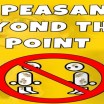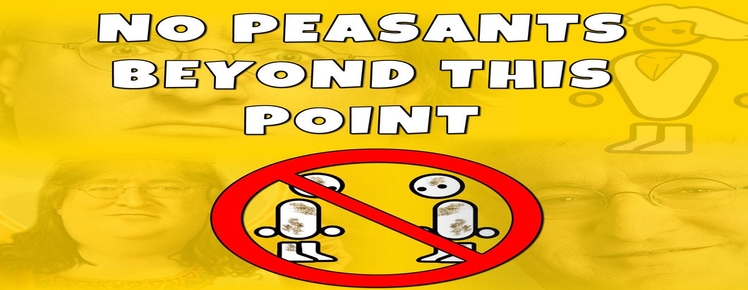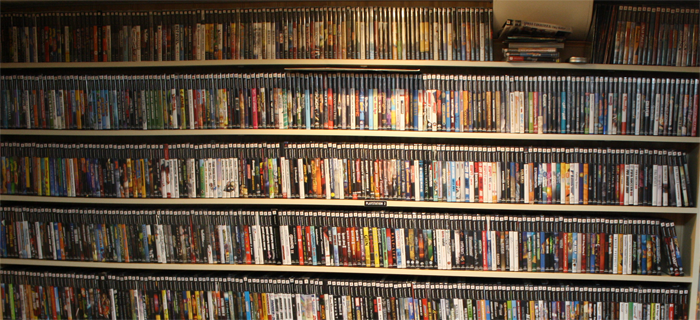The Argument for Exclusivity: Is it really worth it?

Hello and welcome to another edition of vague rambling musings from, me, Gmandam. Today I’m going to talk about the argument for exclusivity. Namely, is it really worth the cost? While I’m mainly focusing on Lara Croft and her exclusivity deal with the Xbox One, this is more or less meant to address the concept as a whole.
But before we continue on the question, let’s outline the actual pros and cons of exclusivity, and why a company may actually accept an exclusivity deal.
Pros: –
- Money in development, game development cost is always going up in the triple A. While whether or not this warranted or not is another issue. The fact remains that costs are going to increase for these games until someone slaps them to remind them they don’t need to spend everything on marketing. A nice infusion of money for an exclusivity deal, even a short timed exclusive can mean the difference between a game breaking even and making a profit.
- Profit before release, companies love many things but amongst what they love is getting money for a project before it’s even been released. Sort of like how kickstarter more or less means a game is successful before it’s even been launched, if you can catch money prior to development in a way that it can’t be taken back, that’s a stack of money that will be much-loved by a company.
- Re-launches, traditionally speaking if a game re-launches on a separate platform after an exclusivity deal they’ll commonly come in around 40 pounds. This isn’t the traditional entry price but you have to remember, this price could be attached up to 2 years or more after the game was released for a console.
Games depreciate insanely quickly after launch, and by the end of their launch month they’ve made the majority of sales they were going to make, the chance for another launch of the same game, even if bundled with DLC, is a very attractive prospect.
- Contacts, most of the industry players know each other fairly well now and this is especially true amongst the bigger players but extra grease never really hurts on a hinge. This is true when you give your game over as an exclusive. It builds contacts and trust that can be used later on when you really need it.
Cons: –
- Game Quantities, much how our old pal Gilleous remarked there are so many games coming out now that the spotlight is only shone on your game for so long. Sure, most triple A publishers have the resources to generate interest after a 2 year lull between platform launches but they’d rather not spend the money if they can get away with it.
- Value, as I mentioned a game comes out now and it depreciated insanely quickly. By the time the next steam sale comes along you’re looking at a decrease in price by around 20% or so on average. Fairly quickly a game ends up getting slashed in price. And this is a new game mind you; people are unlikely to be forgiving of an old game trying to charge 50 or so pounds for itself.
- Fanger, or fan anger. Customers don’t like being dicked about. They especially don’t like artificial barriers between them and a product they want, especially if the barrier costs 350 or so pounds to remove. This annoyance will turn to anger when they release that they were more or less bartered away for more money, and this anger is going to affect their choices in the future.
The Pro Assumptions
Right, now that’s out of the way, let’s address the assumptions the pro side before moving onto the against side.
The pro side makes four fundamental assumptions in their choice to do the deal, that people can’t live without games, that people will buy their game on the other platforms no matter what, that the amount of people they will jerk off with this move and the money they’ll make out of them over the long-term is outweighed by the immediate cash inflow and that any of their projections are in anyway reliable.
Let’s address the last point first, their projections are reliable. They aren’t, we only have to look at Tomb Raider’s previous entry to see that. According to venture beat it was only profitable by the end of 2013, and only met their sales expectations by March of 2014 (Tomb Raider meets Square Enix’s lofty sales expectations after all | GamesBeat | Games | by Jeff Grubb). A Gamespot article provides the amount it expected to sell in its first month, nearly 6 million copies (http://www.gamespot.com/articles/tomb-raider-fails-to-reach-sales-target/1100-6405929/).
The fact is, it is only managed to release that amount after re-releasing the game with a special edition, Tomb Raider: Definitive Edition, which it managed to reach the expected sales figures. The re-release came out around the 31st of January of 2014, so it took nearly a year for the game to reach the expected sales figures of one month.
Sufficed to say, the fact that they were off on expected sales figures were off by nearly 10 months should be embarrassing to anyone.
If your numbers are off like by this much, a not uncommon incidence in business as the banking crisis or the Xbox One will provide to anyone, then a lot of the other assumptions become very dangerous. Let’s look at the third assumption, which is that the amount of money they will get is worth more than the amount of money they’ll lose from customers over the long-term. If I’ve shown anything, it’s that their numbers regarding this are amazingly inaccurate.
If this number is now less certainty and more a blind guess, then how can they be sure that the amount of money made from the exclusivity of their game will outweigh the amount of money lost from fans who won’t buy the game on other platforms?
This brings us to the second assumption, that people will buy the game on other platforms no matter what. This one is ironically one of the hardest ones to counter, because evidence suggests that people will. I’ve done it with Skyrim and a few other games for my transfer to the PC and I know other people have as well. However generally speaking I’ve only ever done it for games I had no bad feelings about.
That’s where this assumption can be countered. No bad feelings, people don’t like being denied things for no reason, especially when it’s quite clear the game could easily be made without that cash injection. That as I’ve mentioned, breeds resentment and anger. Anger burns out quickly, but resentment tends to last longer and colour future opinions pretty much as a whole. This has generated quite a bit of resentment, and this will undoubtedly colour future opinions of the game when it comes it out for other platforms.
The final assumption is the concept that people can’t live without their games. It’s linked to the prior concept it’s more general than that assumption. Essentially gamers are willing to wait for the game to come out for their chosen platform, or failing that are willing to put down the money to buy an entire console for the sake of that one game.
Fact is that video games are often the first thing to go if you’re in a spot of bother. You can pirate them with absurd ease (and almost always will be able to do so) and with the ability to borrow games on both PC and Consoles it’s not impossible to get your game fix elsewhere. In short, it’s easy to go without purchasing games and still enjoy gaming.
The Against Assumptions
Most of them are basically inversions of the pro-assumptions. Namely that you can live without video games, that people won’t buy your game if you withhold it from them, that long-term exclusivity deals only harm money by damaging consumer trust and that projections are commonly unreliable and should be used with caution.
From the top, let’s start with the first assumption. Yes, you can live without video games, the fact that piracy is easy and fairly common means that if you desire a game, the purchase of it is an act of respect for the efforts required to make it. It however is not a need, as you won’t die if you can’t play video games. That sounds like an over-reaction but in some cases it’s really not, the assumption that you must play videogames is most likely the reason why most triple A games haven’t gone down in price.
It’s fairly common to see if you withhold something from someone they get annoyed and might not even want the thing. It’s part of the reason why the concept of gating off content behind additional paywalls breeds resentment; it’s why people objected to DLC and Micro transactions. When people buy something they want to buy all of the features, when they don’t it’s very frustrating. I’m sure most of you know this feeling, the fact that you do proves that the assumption people will buy the game no matter what is flawed.
A company is meant to balance short-term profits vs long-term profits; they can be the same thing sometimes but they can conflict and to achieve one might affect another. An example of this is where a company might change its policy regarding refunds, short term profit might be hurt as a larger number of customers return their games but long-term profits will also most likely go up because of good customer service and reputation. After all, it’s easier to shop at a place and spend more money if you’re safe in the knowledge you can return a product easily.
Sometimes the reverse is needed, because a company’s cash flow is weak and needs the short-term profits more than the long-term profits. A good company is meant to balance the two in such a way as the consumer doesn’t feel like they’ve been completely jerked around. In the case of this exclusively deal its’ very much a short-term profit gain vs a long-term profit loss calculation.
It’s the amount of money from the exclusivity deal take away the predicted amount of money that would have been made from the predicted amount of customers lost over a certain period of time. This number will almost always be negative if it’s being predicted correctly, but if the number is negligible then the deal is pretty much a win-win. This is highly simplified of course, but the basic calculation more or less comes down to how much money
Of course, the accurate usage of such a model relies primarily upon the predicted numbers being somewhat accurate. This happens quite often, in Science at least, where thousands of experiments can be used to accurately predict and model what will happen in an untested set of conditions. It’s less easy when dealing with spending habits because there are many more variables to consider and you can’t specifically isolate each factor down to analyse it.
In short, the numbers are really hard to get right. It’s not uncommon for many different kinds of businesses to mess up their predictions and have to get a loan to keep going. The banking crisis is perhaps the best example of this because all of those banks, the ones that make up the entire banking financial sector and in some cases have 200 years or more of experience, got it wrong.
Banks with 200 years or more experience got it wrong, if you can’t trust people who’ve literally helped to build the modern world to get it right, then why would you expect games companies to get it right? Especially, as I’ve previously mentioned that they couldn’t even get their numbers on target the first time with Tomb Raider.
Conclusion
They key difference between each set of assumptions is one requires everything to go right. Gamers as a whole have to buy your game, after you piss them off. Gamers will buy any game you provide, no questions asked. That the money made from this deal isn’t countered by the amount of money lost from lost fans and that their predictions are somewhat reliable. This is asking a lot, it’s more or less everything going right from day one and staying on track on day one.
While the other assumptions assume incompetence, and as a rule it’s safer to bet on incompetence and mistakes when dealing with millions of moving parts and to assume that somewhere along the chain someone will get figures wrong.
If I were to simplify both sides down to their most basic assumptions, you’d find that the pro side makes three assumptions, maybe 2 on the outside. However the against side makes one assumption, you will get the numbers wrong. Because you get the numbers wrong, your predictions are unreliable, because they are unreliable then this increases the chance you’ve got the deal wrong.
The final conclusion is quite simple; companies regularly make mistakes with their predictive models and this is when the stakes are much higher than just one company. If their models are flat out wrong, or even just off by a little bit, it can mean the whole deal was worth less than what was paid for the exclusive. If that is the case, and I strongly suspect it is, then the flat out purchasing of exclusives is a bad idea in most cases.
While I doubt it’ll matter one way or the other to the companies that try it, most of them think of the short term only, I can only conclude that they are doing massive unseen damage on the long term. Which can only be a bad thing.












[…] subject of Exclusivity has been covered before at Enthusiacs…but never really goes away. In this week’s Point Streak we find Jeff, […]